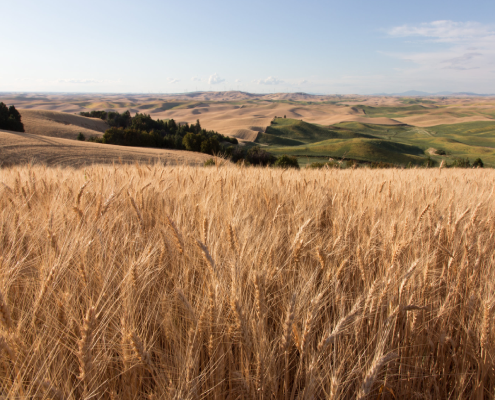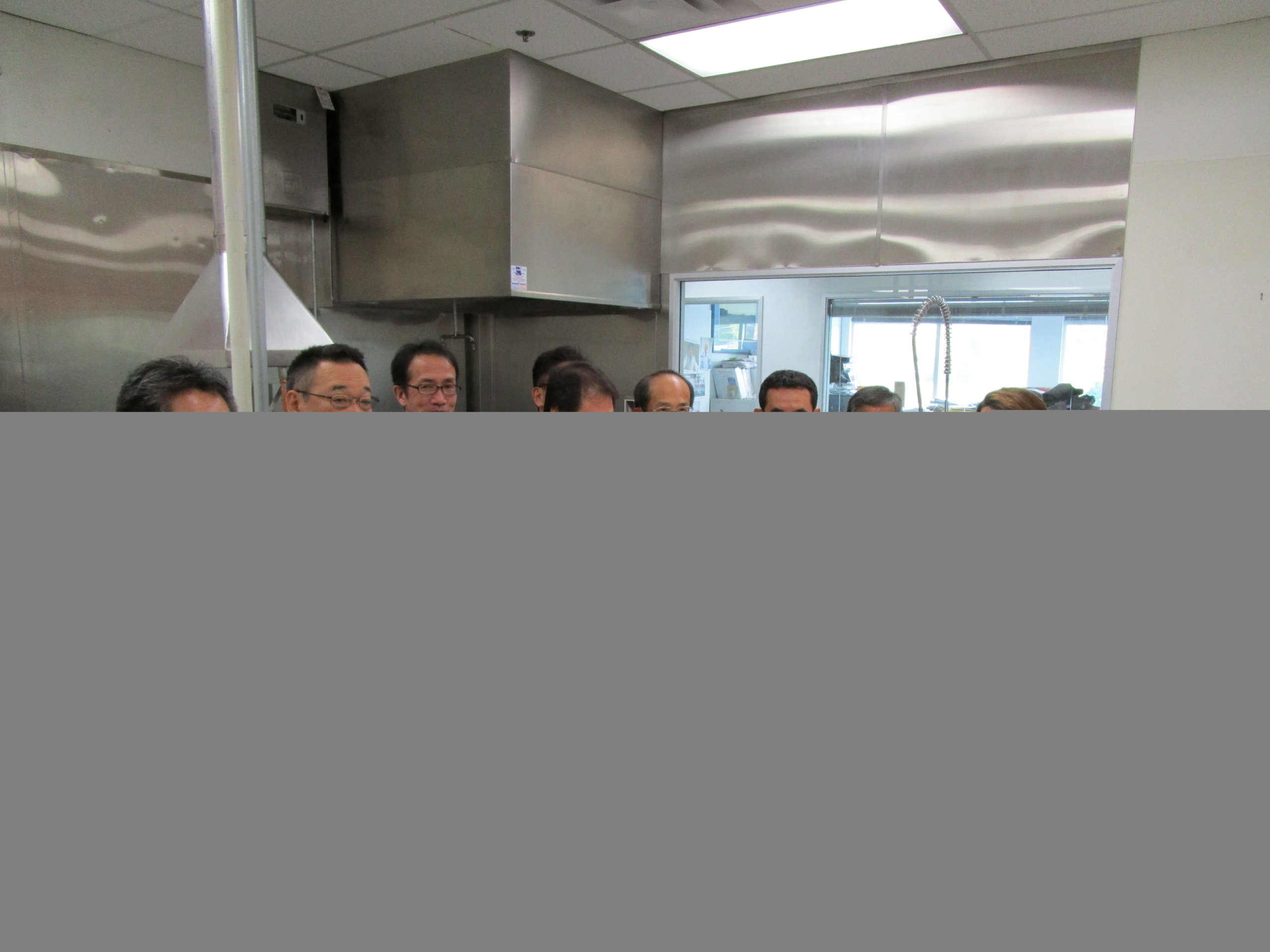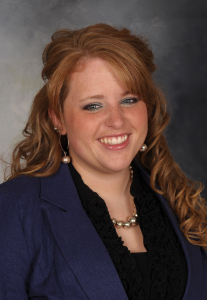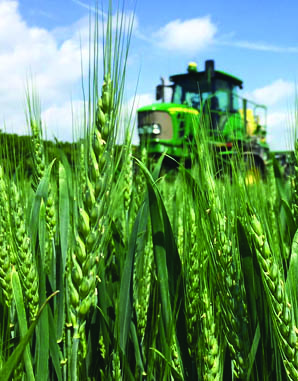ARLINGTON, Virginia — Several influential countries are not complying with the domestic agricultural support commitments they made as members of the World Trade Organization (WTO). That is the conclusion of a study sponsored by U.S. commodity organizations and introduced to agricultural negotiators Wednesday, Feb. 18, 2015, in Geneva, Switzerland. Those organizations made the point that recognizing the current realities in agricultural support and trade could help improve the chances of finally reaching a Doha Round agreement.
The study was conducted by DTB Associates, Washington, DC, and updates a similar study conducted in 2011. U.S. Wheat Associates (USW) was one of the sponsors of the latest study indicating that the governments of India, China, Turkey, Brazil and Thailand have dramatically increased trade distorting subsidies for wheat, corn or rice production over the past ten years to levels that exceed their WTO agreements — in most cases by large margins. That information has not been readily available to WTO negotiators.
“U.S. wheat farmers strongly support the goals of the WTO and the Doha Round,” said USW President Alan Tracy. “We also believe every WTO member must follow the rules. Sadly, the facts we have uncovered show this is not the case.”
Member countries are required to report their domestic support levels to WTO regularly, but more than 650 notifications were late as of November 2014, Tracy noted. Turkey has not reported its support since its 2001 crop year. China has not reported since 2008 and India just submitted a notification last fall covering seven crop years to make them current through 2010. However, the study demonstrates that even notifications that have been reported often rely on faulty methodology.
“This study shines a light on what is really happening,” said USW Vice President of Policy Shannon Schlecht. “What it shows is a massive increase in government-sanctioned support prices and violations of Aggregate Measure of Support agreements that are distorting world trade in wheat, corn and rice.”
The dramatic increases in current support price levels by country and commodity in the study are clear and most revealing when compared with reference prices in the United States (see “Support Price Levels).

*Reference Price, Agricultural Act of 2014
**Support price under the Paddy Pledging Scheme
Note: China and Brazil wheat reflect 2014/15 support price levels
The minimum government prices reported in the study indicated a significant increase in support for wheat production in these countries over the past several years. Since the original study in 2011, a few countries increased their minimum support price for wheat by $50 to $100 per metric ton.
Under the Uruguay Round Agreement of the mid 1990s, WTO member countries agreed to abide by limits on Aggregate Measure of Support (AMS). The DTB study showed India, China, Turkey and Thailand have exceeded their AMS commitments by a wide margin (See “Aggregate Measure of Support”). WTO records show that the United States has always met its annual notification commitment and has never exceeded its AMS limit of $19.1 billion.

Aggregate Measure of Support (AMS)
2013/14 and 2014/15
Billion U.S. Dollars
Country Wheat Corn Rice Other Total AMS Limit
China $15.5 – $18.4 $20.6 – $54.4 $12.4 – $37.0 NA $48.4 – $109.8 $0
India $12.4 – $15.8 $2.5 – $3.8 $13.3 – $28.2 $33.0 $36.1 – 93.4 $0
Brazil $0.8 01 $0.6 NA $1.4 $0.912
Turkey $5.7 $1.0 $0.3 NA $7.0 $0
Thailand NA $0.5 $1.4 – 10.1 NA $1.9 – $10.6 $0.634
1 Support below de minimis level
The fact that these countries have far exceeded their WTO support commitments leads to serious trade distortions. An insightful example may be found in the Indian government’s wheat production and trade policies.
The study determined that India’s minimum support price for wheat increased by 111 percent between 2005/06 and 2013/14. India recently notified the WTO of a much lower increase but the study showed that the Indian government used faulty tactics to calculate the number it reported, a number that many other WTO members have questioned.
Increasing support levels gave Indian farmers an artificial incentive to produce more wheat. In fact, India’s wheat production increased by 35 percent over those seven years to record levels. That buoyed world wheat supplies and increased pressure on prices that hurt wheat farmers in other countries.
Over the same time, Indian wheat exports increased from 300,000 metric tons (MT) to 6.5 million MT. The study also included evidence that India is offering wheat export subsidies that are also illegal under its WTO commitment. Yet, claiming it must maintain a large public stockpile of grain to maintain food security as an advanced developing country, India has demanded exemptions to its trade-distorting levels of support.
“We agree with our U.S. agricultural negotiators that we see no possibility of concluding the Doha agreement by pursuing the same approach used over the last decade,” Schlecht said. “Hopefully the facts in the study will help raise awareness of the current realities of trade-distorting farm subsidies. Without this information it will be impossible for WTO members to achieve a balanced Doha Round conclusion across the domestic support, market access and export competition pillars.”
For more information, visit www.dtbassociates.com/docs/DomesticSupportStudy11-2014.pdf and www.dtbassociates.com/docs/domesticsupportstudy.pdf.
USW is the wheat industry’s export market development organization working to promote all six classes of U.S. wheat in more than 100 countries. Its activities are made possible through producer checkoff dollars managed by 19 state wheat commissions and cost-share funding provided by USDA’s Foreign Agricultural Service. For more information, visit our website at www.uswheat.org.
# # #
Nondiscrimination and Alternate Means of Communications
U.S. Wheat Associates prohibits discrimination in all its programs and activities on the basis of race, color, religion, national origin, gender, marital or family status, age, disability, political beliefs or sexual orientation. Persons with disabilities who require alternative means for communication of program information (Braille, large print, audiotape, etc.) should contact U.S. Wheat Associates at 202-463-0999 (TDD/TTY – 800-877-8339, or from outside the U.S.- 605-331-4923). To file a complaint of discrimination, write to Vice President of Finance, U.S. Wheat Associates, 3103 10th Street, North, Arlington, VA 22201, or call 202-463-0999. U.S. Wheat Associates is an equal opportunity provider and employer.












